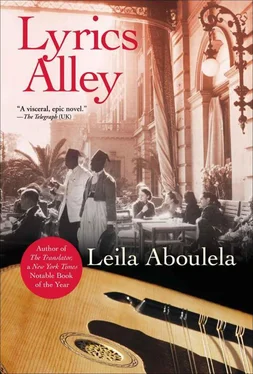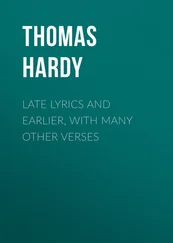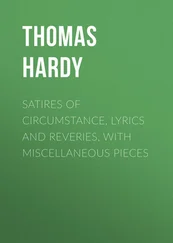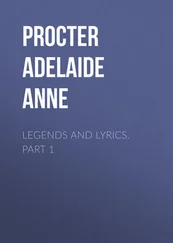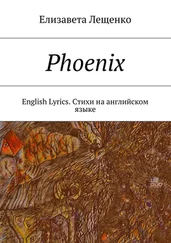Leila Aboulela - Lyrics Alley
Здесь есть возможность читать онлайн «Leila Aboulela - Lyrics Alley» весь текст электронной книги совершенно бесплатно (целиком полную версию без сокращений). В некоторых случаях можно слушать аудио, скачать через торрент в формате fb2 и присутствует краткое содержание. Год выпуска: 2011, Издательство: Grove Press, Жанр: Современная проза, на английском языке. Описание произведения, (предисловие) а так же отзывы посетителей доступны на портале библиотеки ЛибКат.
- Название:Lyrics Alley
- Автор:
- Издательство:Grove Press
- Жанр:
- Год:2011
- ISBN:нет данных
- Рейтинг книги:5 / 5. Голосов: 1
-
Избранное:Добавить в избранное
- Отзывы:
-
Ваша оценка:
- 100
- 1
- 2
- 3
- 4
- 5
Lyrics Alley: краткое содержание, описание и аннотация
Предлагаем к чтению аннотацию, описание, краткое содержание или предисловие (зависит от того, что написал сам автор книги «Lyrics Alley»). Если вы не нашли необходимую информацию о книге — напишите в комментариях, мы постараемся отыскать её.
Lyrics Alley — читать онлайн бесплатно полную книгу (весь текст) целиком
Ниже представлен текст книги, разбитый по страницам. Система сохранения места последней прочитанной страницы, позволяет с удобством читать онлайн бесплатно книгу «Lyrics Alley», без необходимости каждый раз заново искать на чём Вы остановились. Поставьте закладку, и сможете в любой момент перейти на страницу, на которой закончили чтение.
Интервал:
Закладка:
‘I am making a list of all the guests who came to see Father. He asked me to do that.’
Idris called out, ‘You should write each person’s name as they come in. Now you are relying on your memory and you will miss someone out. Also, Ahmed Ismail and his son were here and I don’t know where you were — so put their names down, too.’
This negativity was typical of Idris. Nabilah did not particularly like him. He was too Sudanese for her and, unlike his brother, rarely travelled abroad. She suspected that he had been against their marriage. But Idris knew his place and knew that he could not stand against his older brother.
‘Let me see,’ she said to Nur.
He put down his pen and handed her the notebook. His handwriting was neat. A few names were in English; Graham Westman, Colonel Freddie Hewgill. . Colonel! She felt a surge of pride that her husband moved in such high circles and that even the English went out of their way to visit him. . Mr Wavelry, Dr McCulloch.
‘You even counted the doctor as a visitor!’ This amused her, but Nur looked at her with the same steady gaze and did not share the joke. ‘You wrote the English names in English,’ she said loudly. She could read English, too.
‘Yes. But the Armenians and Greeks I wrote in Arabic.’
There was also a list of those who sent telegrams from faraway provinces and from Cairo. Her stepfather’s name was among them — she had always addressed him as Uncle Mohsin. He was a Senior Civil Servant and a prominent member of the Wafd party. Immaculately dressed and well-spoken, he did not have any children of his own and seemed to have enjoyed a carefree bachelorhood. Not many men would take on a widow with a daughter and he was conscious of this act of charity. You are my family now, he had said to the ten-year-old Nabilah, but everything she did seemed to irritate him. She ate too much, she laughed too loud, she disturbed his siesta and tired out his household staff. Qadriyyah took her husband’s side. He was right and the girl must keep out of his way, out of his sight and hearing. Nabilah must become small, insignificant and inoffensive. She must tiptoe around the apartment, not use the bathroom for too long, not weep too loud, because, as her mother put it to her bluntly, she was a guest.
Nabilah held the notebook in her hand and turned its pages. She sensed that Nur wanted her to give it back, but the list of names was a welcome diversion. She searched for the Egyptian names she was familiar with, the husbands of her new friends.
She said to Nur, ‘In Europe and even in Cairo, some families would have a guestbook and on special occasions visitors coming in would be asked to sign the guestbook. This guestbook would be a large, impressive album and it would be on a small table by itself.’
Nur did not seem to be interested in what she was saying. His eyes were on the notebook and when she turned a page she began to understand why. A loose sheet fell out. She picked it up and Nur’s hand instinctively reached out, but politeness made him hold back. She started to read the sheet of paper. It was a poem, written in his handwriting. A poem of love and longing, of lovers separated by place. Nabilah was not familiar with Sudanese poetry, so she could not tell whether the author was Nur or someone else.
‘Did you write this yourself?’
He hesitated before whispering, ‘No.’
‘Are you sure? I don’t believe you,’ she teased him. He was betrothed to Idris’s daughter, Soraya. They were childhood sweethearts, Nabilah had heard. Perhaps he had written the poem for her. ‘I think you wrote it. It’s nice. You have talent.’
‘A talent for what?’ Idris called out.
‘Poetry. .’ She raised her voice, smiling at Nur. The boy was looking more uncomfortable now, more wary than ever.
From the bed, Mahmoud grunted. He turned and sat up. Hajjah Waheeba handed him his pyjama top.
‘Poetry, ya salaam!’ he said. He sounded his old self again, high-spirited, a little amused.
‘Wasting his time on this rubbish,’ Idris said.
‘Wasting his time indeed,’ said Hajjah Waheeba, as she heaved herself onto the settee.
‘No, he should be encouraged,’ said Nabilah, keen to contradict.
Nur was not young enough to be her son and she felt an affinity with his youth. He was being educated in Egypt, at Victoria College, a school few could afford. She was proud of this further proof that her husband was truly enlightened. He was sparing no expense to give his son the best possible education. And one day he would do the same for her son, Farouk.
Waheeba sucked her teeth.
‘Encouraged?’ She mimicked Nabilah’s Egyptian accent. ‘We are not that kind of family. We don’t waste our time on jingles and silly words.’
‘Read it and judge for yourself.’ Nabilah walked over and, smiling, offered her co-wife the sheet of paper. ‘Read it.’ It gave her satisfaction and pleasure to underline Waheeba’s illiteracy. ‘Don’t you know how to read? I can teach you.’
Waheeba turned her face and shoulder away towards her husband and said, ‘Look at her! She gets up, she sits down, she walks backwards and forwards. What is wrong with her? Why doesn’t she settle down?’ She turned to Nabilah and said, ‘Sit and have a rest. Don’t trouble yourself with Nur and what Nur did and didn’t do. What’s in it for you?’
Before Nabilah could reply, Idris sprang from his seat and snatched the paper from her hand. He scanned it and tore it down the middle. He tore it once, twice, the noise slick and decisive in the silent room. A tall, dark man in a jellabiya with a set, impatient face taking action. He tore it again and dropped it in long, skinny strands on the floor. He sat down again and said to his brother, ‘You are spending money on his education and what does he come back from Egypt with — silly songs!’
‘Exactly,’ murmured Waheeba, facing her son. ‘Did you go to school, ya Nur-alhuda so you can write down shameful things?’
Nabilah looked at Nur, and the boy’s face had that closed, shamed look she had seen before on the faces of servants when they were being told off. She wanted to come to his defence, but when their eyes met, the look she found there was one of hostility. The logic of youth — it was all her fault, she was the meddlesome one.
Mahmoud got up from his bed and put on his dressing gown. He looked tired and thoughtful, his handsome face strained.
He said, ‘Nur, you need to go back to Alexandria. The academic year has started and you’ve missed too many days of school already. I am better now — there is no need for you to stay any longer. Tomorrow morning I will give orders for your travel arrangements. Nabilah. .’
‘Yes. .’ She moved towards him.
‘If you need to send anything to your mother, Nur will deliver it for you. He will stop in Cairo on the way. Also check with the Egyptian servants if they want to send anything to their families.’ He put on his slippers and started to walk to the bathroom. The matter was settled, the subject closed.
After Idris left, Nabilah made a point of remaining in the room to outstay Waheeba. While Mahmoud Bey read the newspaper, she watched Nur pick up the torn pieces of paper from the floor. He crumpled them and threw them in the bin.
‘Later on I will talk to your father about this,’ she promised him, her voice low.
His response was an anxious look at his father’s face, hidden behind the newspaper. She did not say anything more. Perhaps later, in private, Mahmoud would admit to her that he had been on her side, that Idris and Waheeba had over-reacted. Idris must have guessed that Nur’s poem was addressed to Soraya and, as her father, taken offence. Later, Nabilah could convince Mahmoud that it was civilised and modern to allow young people to express their feelings through poetry, music or art. Now, though, she must bear this dull, metallic feeling of — not exactly defeat, but not exactly success, either.
Читать дальшеИнтервал:
Закладка:
Похожие книги на «Lyrics Alley»
Представляем Вашему вниманию похожие книги на «Lyrics Alley» списком для выбора. Мы отобрали схожую по названию и смыслу литературу в надежде предоставить читателям больше вариантов отыскать новые, интересные, ещё непрочитанные произведения.
Обсуждение, отзывы о книге «Lyrics Alley» и просто собственные мнения читателей. Оставьте ваши комментарии, напишите, что Вы думаете о произведении, его смысле или главных героях. Укажите что конкретно понравилось, а что нет, и почему Вы так считаете.
